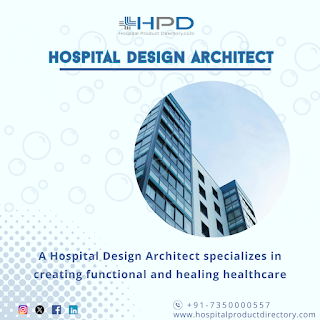Navigating Healthcare Excellence: The Role of Hospital Project Consultants
In the ever-evolving landscape of healthcare, the importance
of efficient hospital infrastructure cannot be overstated. Hospital project
consultants serve as the architects of healthcare excellence, guiding
institutions through the intricate maze of planning, designing, and executing
projects that enhance patient care, operational efficiency, and overall
sustainability. In this article, we delve into the pivotal role played by
hospital project consultants and explore the multifaceted value they bring to
the table.
Understanding the Essence of Hospital Project Consultants
Hospital
project consultants are the driving force behind the successful realization
of healthcare facility projects, be it constructing a new hospital, expanding
existing facilities, or renovating outdated infrastructure. These professionals
possess a unique blend of expertise spanning architecture, engineering,
healthcare regulations, and project management. Their primary objective is to
align the physical environment of healthcare facilities with the strategic
goals and operational requirements of the institution.
Strategic Planning and Needs Assessment
One of the initial steps in any hospital project is
conducting a comprehensive needs assessment to identify existing gaps and
future requirements. Hospital project consultants employ a strategic approach,
collaborating closely with stakeholders to understand their vision, operational
workflows, patient demographics, and technological needs. This meticulous
planning phase lays the foundation for designing solutions that not only meet
current demands but also anticipate future trends in healthcare delivery.
Designing Patient-Centric Spaces
Central to the philosophy of hospital project consultants is
the concept of patient-centric design. They prioritize creating environments
that prioritize patient comfort, safety, and healing. From optimizing room
layouts to integrating natural light and green spaces, every aspect of the
design is meticulously crafted to enhance the overall patient experience.
Additionally, consultants pay keen attention to accessibility standards,
ensuring that facilities are inclusive and accommodate individuals with diverse
needs.
Navigating Regulatory Compliance
Navigating the complex landscape of healthcare regulations
and building codes is a daunting task for any institution. Hospital project
consultants serve as expert navigators, ensuring that facility designs adhere
to all applicable regulations and standards. Whether it involves compliance
with HIPAA regulations, fire safety codes, or infection control measures,
consultants possess the requisite knowledge to mitigate risks and ensure
regulatory compliance throughout the project lifecycle.
Optimizing Operational Efficiency
Efficiency is paramount in the delivery of healthcare
services, and hospital project consultants are instrumental in optimizing
operational workflows within healthcare facilities. Through thoughtful design
and layout planning, consultants streamline processes, minimize bottlenecks,
and maximize resource utilization. This focus on operational efficiency not
only enhances staff productivity but also improves patient throughput and
reduces wait times, ultimately leading to better outcomes.
Harnessing Technology and Innovation
In an era defined by rapid technological advancements,
hospital project consultants leverage cutting-edge innovations to future-proof
healthcare facilities. From integrating state-of-the-art medical equipment to
implementing smart building technologies, consultants harness the power of
innovation to enhance clinical capabilities and improve efficiency.
Additionally, they facilitate the seamless integration of electronic health
records (EHRs) and telemedicine solutions, empowering healthcare providers to
deliver care more effectively across diverse settings.
Sustainability and Environmental Stewardship
As the healthcare industry embraces sustainability
initiatives, hospital project consultants play a pivotal role in promoting
environmentally conscious design practices. Consultants advocate for
energy-efficient building systems, sustainable materials, and renewable energy
solutions, thereby reducing the carbon footprint of healthcare facilities. By
prioritizing sustainability, consultants not only contribute to environmental
stewardship but also help institutions realize long-term cost savings through reduced
energy consumption and operational expenses.
Conclusion
In conclusion, hospital project consultants are
indispensable partners in the journey towards healthcare excellence. Through
their expertise in strategic planning, design innovation, regulatory
compliance, and operational optimization, consultants empower healthcare
institutions to create environments that foster healing, efficiency, and
sustainability. As the healthcare landscape continues to evolve, the role of
hospital project consultants will remain paramount in shaping the future of
healthcare delivery.




Comments
Post a Comment